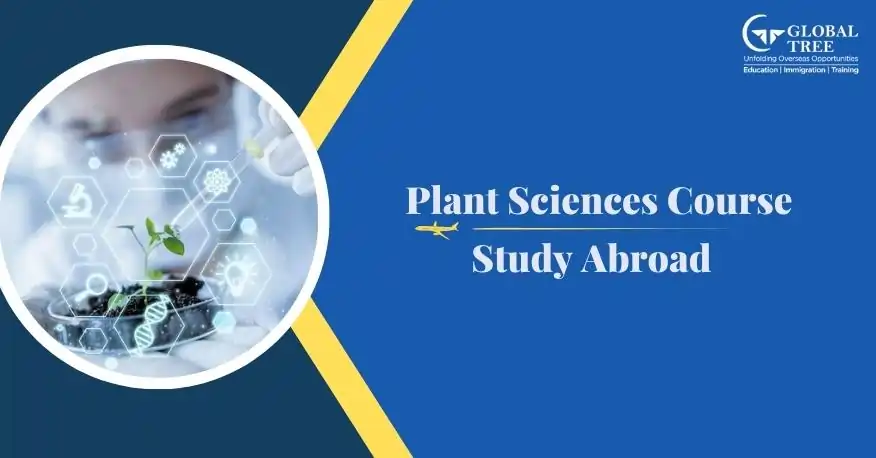Study Plant Sciences Course Abroad

Introduction
From food to oxygen, plants supply all of our basic needs. Therefore, it is crucial to comprehend the processes that underlie plant development as well as how plants react to shifting environments.
Plant science focuses on how plants are utilized to produce food, alter the environment, repair damaged landscapes, advance human health and -being, enhance social environments, and offer the general public amusement and useful advantages. Environmental preservation depends on the results of this research. Choose the Best Plant Sciences Course & Colleges to Study Abroad.
The primary focus of plant sciences is the application of science to crop production in agriculture and horticulture. Additionally, it covers biological and chemical pest management, hydroponics, fertilisers, and dietary supplements.
Who is eligible to study Plant Sciences Course Abroad?
Plant scientists are frequently engaged in activities that assist them learn more about plants and preservation since they are naturally curious and want to preserve the environment. They are adept at problem-solving and critical thinking.
They are also capable of gathering data through a number of approaches, analyzing it, and effectively communicating their results so that others can profit from them. Plant Sciences might be a good fit for you if you think you possess the aforementioned traits.
How much does it cost to study Plant Sciences Course Abroad?
You must choose the best universities abroad to study a bachelor's degree in agriculture or a closely related subject, such as biology or chemistry, is often required of plant scientists. Plant scientists often take biology, chemistry, botany, and plant conservation as their undergraduate courses. A bachelor's degree curriculum typically lasts four years and costs $8,218 to $20,790 in the US. Depending on the specialization you chose, a master's study can be finished in one to three years. In the US, graduate programme tuition is typically $23,902 per year.
What is the Future Scope of Plant Sciences Course Abroad?
More than ever, there is a need for effective agricultural production and improved plant management due to the growing worldwide population. The U.S. Bureau of Labour Statistics projects that employment of agricultural scientists will increase by 9% between 2020 and 2030. In this ten-year period, there should be roughly 4,400 employment openings for agricultural and food scientists.
Trending Career Options in Plant Sciences Course Abroad
Career as an Agronomist
You will be in charge of assessing and boosting the farm's agricultural output and running lab tests on soil, seed, and crop samples as an agronomic. Along with performing quality control for seed caliber and soil standards, you'll also keep records of your research, testing, and results.
(Read more: top universities to study abroad best courses)
Career as a Horticulturist
It is the responsibility of horticulturists to increase the yield, vigour, size, and flavour of plants. They also organise several projects for crop research. A strong understanding of a variety of plants, such as trees, flowers, vegetables, nuts, bushes, and fruits, is required of horticulturists.
Career as an Entomologist
An entomologist is a "bug expert" who does research on pest management strategies for protecting crops from pests.
Career as a Crop Advisor
A crop advisor or consultant offers guidance on crop management, including seeding, fertilising, controlling pests, and treating plant diseases. Crop advisors can help farmers enhance crop productivity anywhere in the world.









